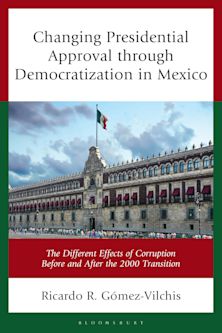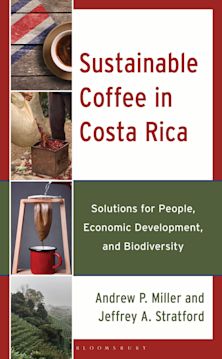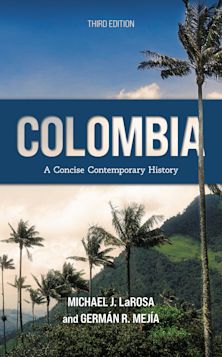Latin American Extractivism
Dependency, Resource Nationalism, and Resistance in Broad Perspective
- Textbook
Latin American Extractivism
Dependency, Resource Nationalism, and Resistance in Broad Perspective
- Textbook
This product is usually dispatched within 2-4 weeks
- Delivery and returns info
-
Flat rate of $10.00 for shipping anywhere in Australia
Description
This cutting-edge book presents a broad picture of global capitalism and extractivism in contemporary Latin America. Leading scholars examine the cultural patterns involving gender, ethnicity, and class that lie behind protests in opposition to extractivist projects and the contrast in responses from state actors to those movements.
Table of Contents
Juan Carlos Monedero
Introduction: Rethinking Latin American Extractivism
Steve Ellner
Part I: The Global Focus
1 The Political Economy of Mining in Colombia: The New Face of Globalization?
Kyla Sankey
2 Financialization, Institutional Reform, and Structural Change in the Bolivian Boom (2006–2019)
Alfredo Macías Vásquez and Jorge García-Arias
3 South-South Cooperation or Dependency with “Chinese Characteristics” in Venezuela?
Emma Miriam Yin-Hang To
Part II: The Pink Tide Countries
4 Reframing Resource Nationalism: Social Forces and the Politics of Extractivism in Latin America’s Pink Tide
Luis Fernando Angosto-Ferrández
5 Extractivism and Resource Nationalism in Bolivia: Foreign Direct Investment Policy and Development under Evo Morales
María J. Paz and Juan M. Ramírez-Cendrero
6 Extractive Policies in Mexico at the Outset of López Obrador’s Presidency
Darcy Tetreault
7 Tracing the Political Life of Kimsacocha: Conflicts over Water and Mining in Ecuador’s Southern Andes
Teresa A. Velásquez
8 The Gendered Dimensions of Soybean Extractivism in Argentina
Amalia Leguizamón
Part III: Conservative and Right-Wing Governments
9 Mining Governance in El Salvador and Honduras: Lessons from Contrasting Approaches to Extractivism
Anthony Bebbington, Benjamin Fash, and John Rogan
10 The Other Extractivism: The Andean State and Small-Scale and Artisanal Gold Mining
Zaraí Toledo Orozco
11 Black Women’s Struggles against Extractivism, Land Dispossession, and Marginalization in Colombia
Castriela Esther Hernández Reyes
Index
About the Contributors
Product details
| Published | 07 Dec 2020 |
|---|---|
| Format | Paperback |
| Edition | 1st |
| Extent | 304 |
| ISBN | 9781538141564 |
| Imprint | Rowman & Littlefield Publishers |
| Illustrations | 1 b/w illustration; 8 tables |
| Dimensions | 228 x 156 mm |
| Series | Latin American Perspectives in the Classroom |
| Publisher | Bloomsbury Publishing |

































